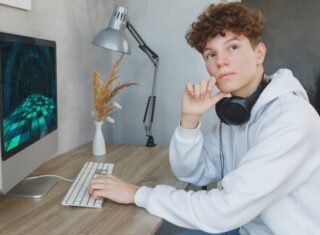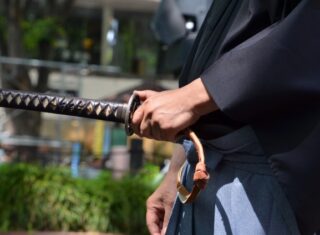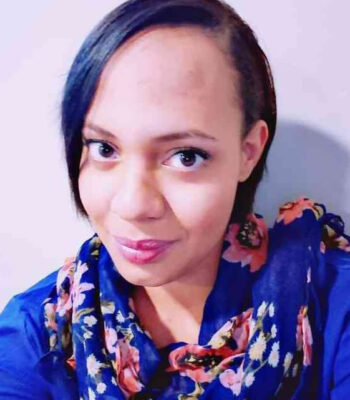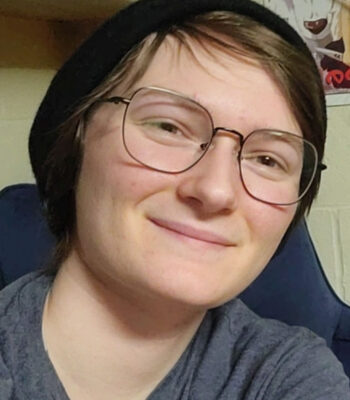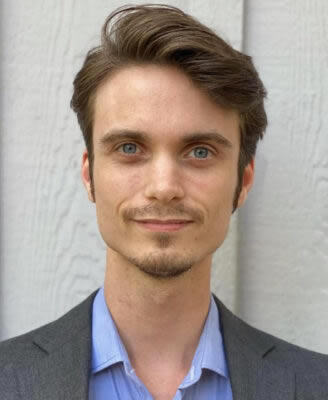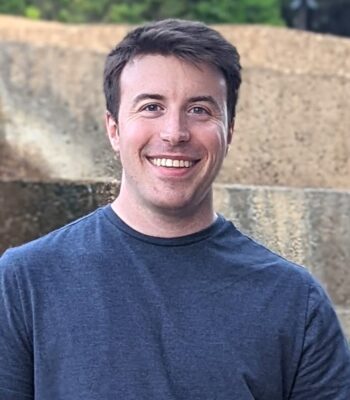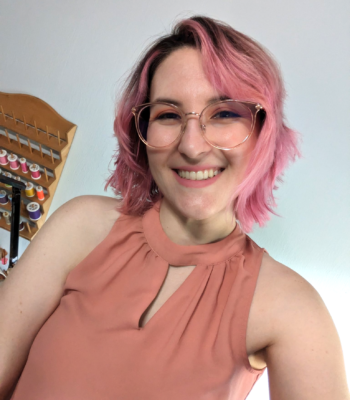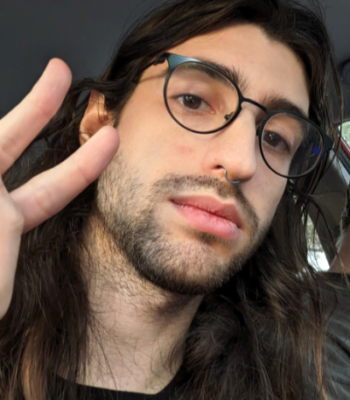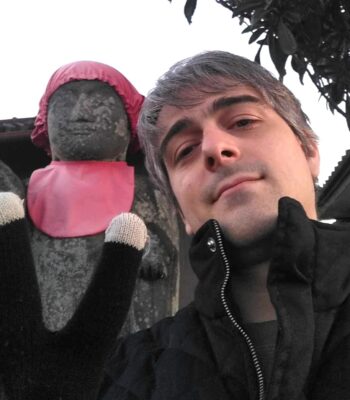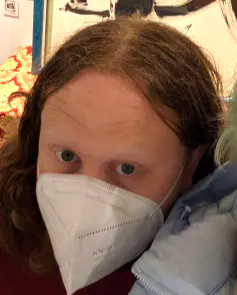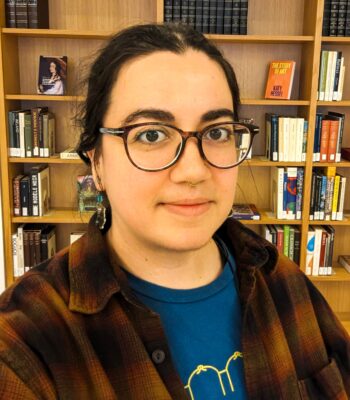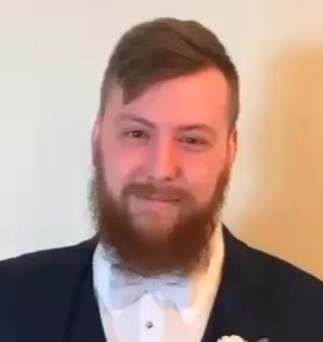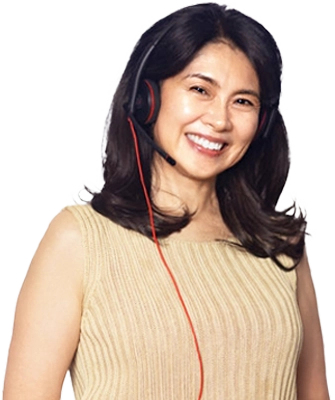- Learning Japanese
From Zero to Fluent in Japanese: The True Story of How I Mastered Japanese and Changed My Life – Part 1: When the Path Disappears
2025.10.08
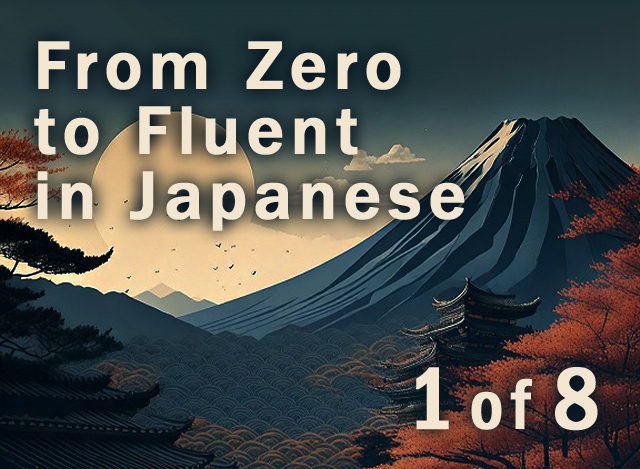
Introduction – From Zero to Fluent
My name is Julian.
I’m originally from the U.S., but now I work at a Japanese company, using Japanese at work and in my life every day.
But not long ago, I couldn’t speak a word of it.
I still remember my first trip to Japan. Jet-lagged and thirsty, I walked into a nearby convenience store to buy a bottle of tea. The cashier scanned it, and said something to me with a polite smile…
I had no idea what he said.
I just stood there, wide-eyed, completely blank.
The pause grew awkward. He repeated it. Still had no idea what he said. Finally, he gestured towards the plastic bags below him. Finally understanding what he meant, I shook my head to let him know I didn’t need one—after paying for the tea, I walked out red-faced and frustrated.
And yet—here I am.
This article series is not a list of tips or hacks. It’s not a how-to guide. It’s a story.
My true story of how I went from zero to fluent in Japanese—and how it changed my life.
If you're feeling lost, or wondering whether real fluency is even possible for someone like you, I want you to know something:
You’re not alone.
I started from zero too.
And if you truly want it—you can get there.
This is a journey of language, yes—but more than that, it's about culture, struggle, failure, growth, human connection, happiness, and discovering the version of yourself you never knew existed.
And I hope that, somewhere in these chapters, you’ll find a piece of your own journey reflected, and that it will light a spark in you, too.
Let’s begin..
Chapter 1: A Life Made of Music
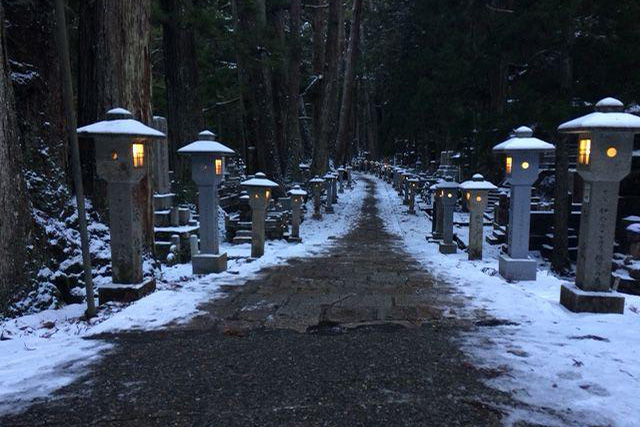
I started playing piano when I was seven.
Not because I had some natural calling, but because my parents signed me up. They thought music would be good for me—structured, cultured, respectable. I was never the kid banging on the keys with wild passion. But I had a decent ear, strong hands, and enough coordination to make quick progress. And that progress brought praise.
“You’re talented.”
“You’re a natural.”
“You should definitely stick with this.”
That kind of feedback kept coming—not just from my parents, but from teachers, relatives, friends, everyone around me. And when you’re young, that kind of encouragement means everything. I didn’t know who I was yet. But I knew what got applause.
So I leaned into it.
I kept playing. I joined choirs, dabbled in bass and guitar, wrote little compositions here and there. Music slowly became the thing I was “known for.” Not because I loved it more than anything—but because it was the one thing I got consistent validation for.
And when all the positive reinforcement in your life revolves around one activity, it’s easy to get tunnel vision. I began to believe that music was the only thing I was good at. The only thing I could do. I never had the space—or the self-confidence—to imagine anything else. I didn’t know that I might be gifted in other areas too, or that there was a whole world of skills, fields, and passions I hadn’t even begun to explore.
By the time college rolled around, it just felt automatic. I enrolled as a classical piano performance major—not because I was burning with purpose, but because it was what made sense. What people expected. What I was “good at.”
And I was good. But something didn’t feel right.
I wasn’t the kind of student who practiced for hours out of pure obsession. I wasn’t curious about technique, or lost in the details of phrasing and interpretation. I wasn’t lit up the way my classmates were. While they shut themselves in practice rooms until midnight, chasing perfection, I found myself drifting. I wasn’t miserable. But I wasn’t moved.
It was as if I’d built my life on a foundation I never stopped to question.
Looking back, I realize I wasn’t choosing music. I was just following the only path I’d ever been shown. And deep beneath the routine and the competence, a quiet restlessness was beginning to grow.
At the time, I didn’t know what that feeling meant—or what I was supposed to do with it. But that gentle unease? That was the first sign that something needed to change.
Chapter 2: The Jazz Teacher’s Question
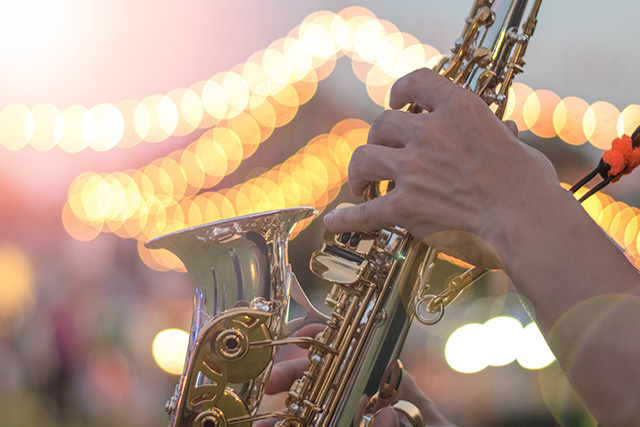
It was during my senior year of high school—right around the time the cracks were just starting to show.
I had taken up jazz piano lessons on the side, hoping to shake things up from the classical routine. I figured it would be good for my flexibility as a musician, maybe help with college auditions. But more than that, I think I was looking for something that felt less rigid. Something freer, more expressive. Something that might help me figure out why this path—music—was starting to feel so uncertain.
My jazz teacher was a kind, laid-back guy with a gentle voice and the kind of wisdom that didn’t try too hard to sound wise. During one lesson, as we sat across from each other at the piano, I found myself asking a question I hadn’t planned to ask.
“Do you think people should do what they’re good at, or what they love?”
I’ll never forget how quickly he answered.
“They should do what they love,” he said, without even blinking.
No long explanation. No weighing of pros and cons. Just a quiet confidence that struck me.
I nodded like I understood. But I didn’t.
Not really.
Back then, I didn’t even know if I loved anything. All I knew was what I was good at—and what people seemed to want from me. His answer stirred something in me, but I couldn’t do anything with it yet. It felt like someone had handed me a seed, but I had no idea where to plant it.
Still… it stayed with me.
I didn’t act on it. I didn’t suddenly quit music or switch directions. But that sentence—that choice—took root somewhere deep inside. And as the quiet dissonance in my life began to build, so did the memory of his voice, gently echoing beneath it all.
They should do what they love.
I didn’t know it then, but that question would end up changing everything.
Chapter 3: Breaking Point

College didn’t feel different at first.
Sure, the workload was heavier, the expectations higher—but the structure was familiar. Study music theory, Practice, rehearse, perform. Rinse and repeat. I just continued to do much of the same what I had already done for years up to that point. But deep down, the restlessness was growing. Slowly. Quietly. Like a low-frequency hum I couldn’t turn off.
The other students around me seemed to thrive on discipline. They’d lock themselves in practice rooms for hours, working through the same passages again and again with surgical precision. They lived and breathed music. Their passion was palpable.
But mine wasn’t.
I practiced. But not with fire. Not with hunger. And no matter how much I tried to will myself into caring more, something inside me refused to spark.
Then one day, during a one-on-one lesson with my professor—a brilliant man who could transpose book-length pieces he memorized on the fly—looked at me across the grand piano and asked, flatly:
“You do know that to get truly good, you need to practice at least three hours a day, right?”
I nodded. “Yes.”
He paused for a second. Then followed up.
“Then why don’t you do it?”
I froze.
I don’t remember what I mumbled back—probably something vague, something polite. But the real answer didn’t come until hours later, when I was walking home alone across campus, the air still and the sky already dark.
And then, mid-step, it hit me.
Because I don’t love it.
That thought stopped me cold.
Not because it was shocking—but because it was honest. Brutally honest. And for the first time in years, I let myself feel the weight of that truth.
I didn’t love it. Not enough to give my life to it. Not enough to grind through the sacrifices that real passion demands.
And in that moment of quiet clarity, something inside me broke.
But it wasn’t the kind of break that destroys—it was the kind that sets you free.
Because when you finally stop lying to yourself, even gently, you create space for something new. Something real. Something that might—just maybe—be yours.
Chapter 4: What Else Is There?
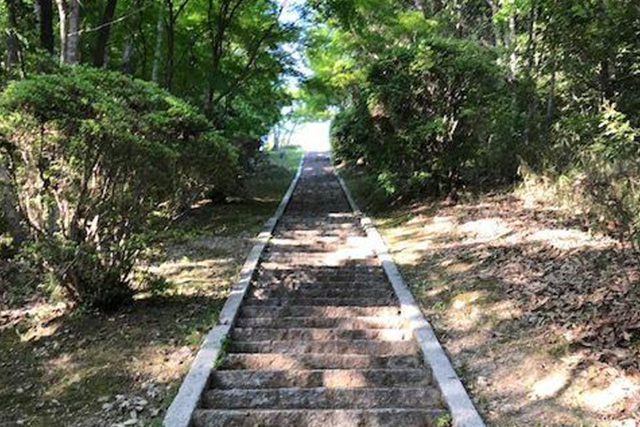
After that night, I couldn’t pretend anymore.
I still went to class. I still played my pieces. I still showed up for my music credits. But something had shifted—and there was no going back.
The realization was simple, but irreversible:
If you want to dedicate your life to music… you have to love it.
Not like it. Not be good at it. Not tolerate it because it makes other people happy.
You have to love it—so much that the hours melt away in the practice room. So much that you want to play in every ensemble, hustle for gigs on weekends, spend your free time listening, dissecting, creating.
And watching my peers do exactly that… I knew I couldn’t. Not because I wasn’t capable. But because I didn’t feel the same fire they did.
And if I didn’t have that fire, I had no business pretending this was my path.
The only problem was—I didn’t know what else was.
So I started from where I was: lost, but honest.
I sat down one night and made a list—not of what I wanted, but of what I didn’t want. I started crossing things off: not biology, not nursing, not law. Not music performance, not music education, not composition.
Line by line, I ruled things out. And when I reached the bottom of the list, only one thing remained.
Mechanical engineering.
I didn’t understand it. I didn’t have a background in it. I didn’t know what an engineer’s day-to-day life even looked like. But something about it—its rigor, its logic, its structure—felt like a door I hadn’t yet opened.
So I opened it.
I switched majors as soon as I could. Since it was midway through the academic year, I also made a plan to finish out a music minor, tying up what I’d already started. But from that point on, I committed myself to a completely new field—a field I didn’t know, but was willing to learn.
And for the first time, the decision was mine.
No one had suggested it. No one had nudged me toward it. I wasn’t trying to please anyone or prove anything. I was just following a small thread of curiosity, and trusting it was enough to begin.
It wasn’t a leap of passion. It wasn’t a grand reinvention.
It was something quieter—but just as important.
A willingness to begin again.
Chapter 5: The Jazz Concert & The Voice Beneath the Silence
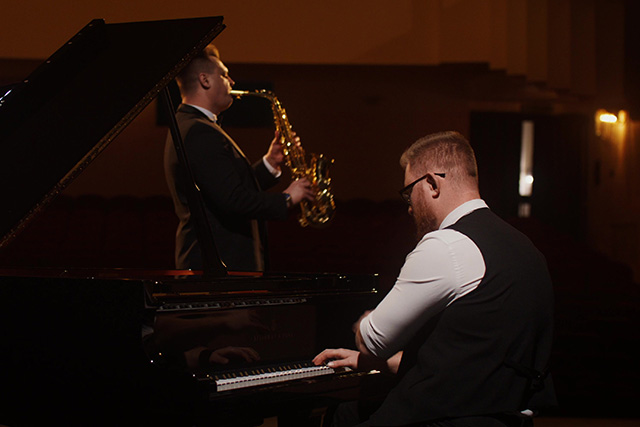
It was months later—sometime during my sophomore year—when a friend invited me to a jazz concert on campus.
I didn’t think much of it. I said yes, partly because I still liked music, and partly because I hadn’t yet figured out what to do with all the space that quitting music as a major had left behind.
The concert wasn’t themed or anything. Just a group of talented musicians playing complex, progressive jazz in a dark auditorium on a weeknight.
But as the music began, something in me shifted.
I sank into the seat. The rhythms were odd, layered, hypnotic. The melodies came in waves, bending and folding in unpredictable directions. And somewhere in the middle of it—somewhere in the repetition, in the chaos, in the stillness between notes—I closed my eyes.
And then it happened.
Not a thought.
Not a plan.
Not a dream I’d buried and suddenly remembered.
Just a single, quiet sentence that rose out of nowhere, as if whispered into the space behind my eyes:
“I should study Japanese. And I should go to Japan.”
That was it.
No reason. No logic. No context. No one in the band was Japanese. There was nothing culturally “Asian” about the performance. The thought didn’t come from the music—it came through it, like a ripple from someplace deeper.
I opened my eyes, stunned. But I didn’t shake it off. I didn’t dismiss it as random.
Because somehow, I knew.
That voice—soft and inexplicable—felt more real than anything I’d thought in my whole life.
It wasn’t an idea. It was a transmission.
Something buried in my subconscious had surfaced, clear and pure and without apology. I didn’t know where it came from, or what it meant, or how I was supposed to act on it. But I went home that night and opened my laptop.
I typed:
“Japanese writing system.”
And for the first time, I saw the characters:
Hiragana. Katakana. Kanji.
I didn’t fully understand what I was looking at.
But something in me—something I couldn’t explain—had already started moving.
★Also try reading:
Expanding Your Worldview: Life-Changing Hobbies and How to Find the Right One for You
Chapter 6: Tears of a New Beginning

The next semester, I signed up for Japanese 101.
It wasn’t some big, dramatic leap. Just a quiet click on the course registration page. But something about it felt different from every class I’d ever taken before. This wasn’t for a requirement. It wasn’t for my major. It wasn’t even for a clear purpose.
It was just… for me.
And before the semester started, I got curious. I remembered the characters I’d seen online and wanted to try writing them myself.
I printed out a hiragana chart. Sat down with a pen and paper.
あ、い、う、え、お...
At first, it was just lines and curves. But somewhere between さ and た—halfway through the chart—my hand stopped.
And my eyes filled with tears.
I didn’t understand it at the time. I wasn’t sad. I wasn’t overwhelmed. But something about those characters—about seeing them take shape under my hand—unlocked something in me I had never felt before.
It was as if, without knowing it, I had finally brushed up against my real path.
Not because it made sense. Not because it was useful. Not because it was a part of some logical plan I devised.
But because, for the first time, something felt right.
And that feeling—raw, unexplainable, undeniable—was enough.
Looking back now, I realize that was the true beginning.
Not when I enrolled. Not when I took my first class. But that quiet moment at the desk, alone with a pen and a strange new alphabet, crying without fully knowing why.
★Also try reading:
Before You Learn a Single Word of Japanese, Read This




